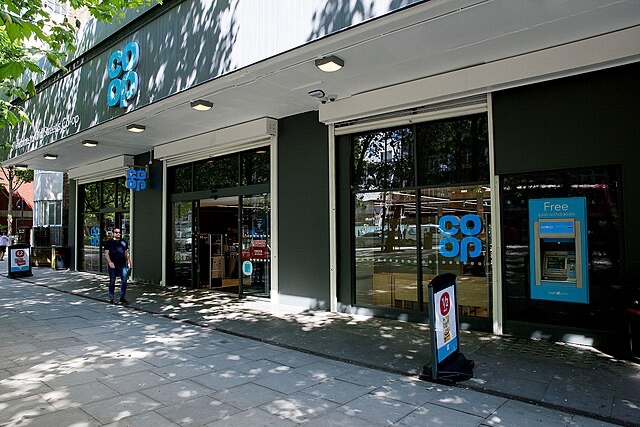In a major breach of customer trust and data security, UK retail giant Co-op has confirmed that personal data belonging to approximately 20 million customers has been stolen in a cyberattack orchestrated by a notorious hacker group called DragonForce. Initially downplaying the incident, Co-op was later forced to acknowledge the full scale of the breach after the hackers contacted the BBC with proof of their theft. Now, with law enforcement and cybersecurity agencies involved, Co-op faces mounting pressure to reassure its customers and overhaul its digital defenses.
What Happened in the Cyberattack?
The breach targeted Co-op’s membership database, one of the largest loyalty programs in the UK. DragonForce claims they accessed a trove of personal information from members who signed up over the past decade. The breach reportedly includes names, email addresses, phone numbers, and dates of birth—but, crucially, not passwords, bank accounts, or transaction records.
The hackers supplied evidence to media outlets including customer membership numbers and internal documentation, confirming the breach’s authenticity.
Who Is DragonForce?
Background on the Hacker Group
DragonForce is a well-known cybercriminal collective, believed to have Southeast Asian roots. They’ve previously been linked to ransomware and data-leak threats targeting institutions across Europe and Asia. Often operating under an anti-establishment banner, the group thrives on stealing and leaking large data sets to prove weaknesses in corporate and governmental systems.
Their History of Cyber Threats
Before the Co-op breach, DragonForce had already claimed responsibility for attacks on Marks & Spencer and an attempted breach of Harrods. They are notorious for using public data leaks to embarrass high-profile organizations and pressure them into paying ransoms or admitting fault.
Details of the Co-op Data Breach
What Information Was Stolen?
According to forensic experts brought in by Co-op, the hackers accessed:
- Full names
- Contact numbers
- Email addresses
- Dates of birth
- Co-op membership numbers
What Was Not Compromised?
Thankfully, no payment card data, passwords, or transaction history was accessed. Co-op has assured customers that their most sensitive financial information remains secure. However, data privacy advocates warn that even seemingly harmless personal data can be weaponized in phishing scams and identity fraud.
Co-op’s Response to the Cyberattack
Initial Reaction vs Final Confirmation
At first, Co-op downplayed the scale of the breach, suggesting that only a “small subset” of customers may have been affected. But when DragonForce publicly revealed the stolen data, Co-op changed its tune—launching a full-scale response and issuing a formal apology.
Public Apology and Assurance
In its statement, Co-op said: “We apologize unreservedly to all members affected by this incident. We are taking this matter incredibly seriously and are working closely with cybersecurity specialists to secure our systems and support those impacted.”
Government and Law Enforcement Involvement
Role of the National Crime Agency and Cyber Security Centre
The UK’s National Crime Agency (NCA) and National Cyber Security Centre (NCSC) have launched an investigation. The NCA is tracking the group’s digital footprints, while the NCSC is assisting Co-op with vulnerability assessments and incident containment.
Ongoing Investigation and Security Protocols
The probe includes tracing the breach’s origin, identifying any insider access, and preventing future attacks. Experts have not ruled out that the hackers exploited outdated software or third-party access points—a common method in large-scale retail breaches.
Impact on Co-op Customers
What Should Members Do Now?
If you’re a Co-op member:
- Change your passwords on related accounts.
- Be wary of phishing emails pretending to be from Co-op or banks.
- Monitor your credit reports for unusual activity.
- Report suspicious messages to Action Fraud or the NCSC.
Risks of Phishing and Identity Theft
Even without financial data, hackers can use personal details to trick people into handing over more sensitive information. Customers should expect an uptick in scam emails and phone calls and should be cautious when clicking on links or sharing details online.
The Bigger Picture: Retail Cybersecurity in the UK
Rising Attacks on British Retailers
The Co-op breach is the latest in a disturbing trend. In the last year, several British retailers have reported cyber intrusions, signaling a larger issue in digital infrastructure and data management practices.
Are Stores Doing Enough to Protect Your Data?
Cybersecurity experts say many UK companies are still lagging in best practices—such as encryption, intrusion detection, and employee training. The Co-op hack is expected to spark a wave of audits and new cybersecurity investments across the retail sector.
Conclusion
The Co-op cyberattack marks one of the most significant retail data breaches in recent UK history. With millions affected and a notorious hacking group behind it, the fallout is far from over. While no financial details were exposed, the implications for personal privacy and digital trust are serious. The incident should serve as a wake-up call—not just for Co-op, but for all companies handling vast amounts of customer data in an increasingly hostile digital landscape.
FAQs
What is DragonForce?
A cybercriminal hacking group known for large-scale data breaches across retail and government sectors.
How do I know if my data was affected?
Co-op will contact affected members directly. You can also check for suspicious account activity or scams.
What is Co-op doing to protect customers?
They’ve brought in cybersecurity experts, are working with national security agencies, and have upgraded their systems.
Has any financial data been leaked?
No. Co-op confirms that payment card data and bank details were not compromised in the attack.
What should I do if I’m a Co-op member?
Update passwords, watch for phishing attempts, and consider a credit monitoring service.



